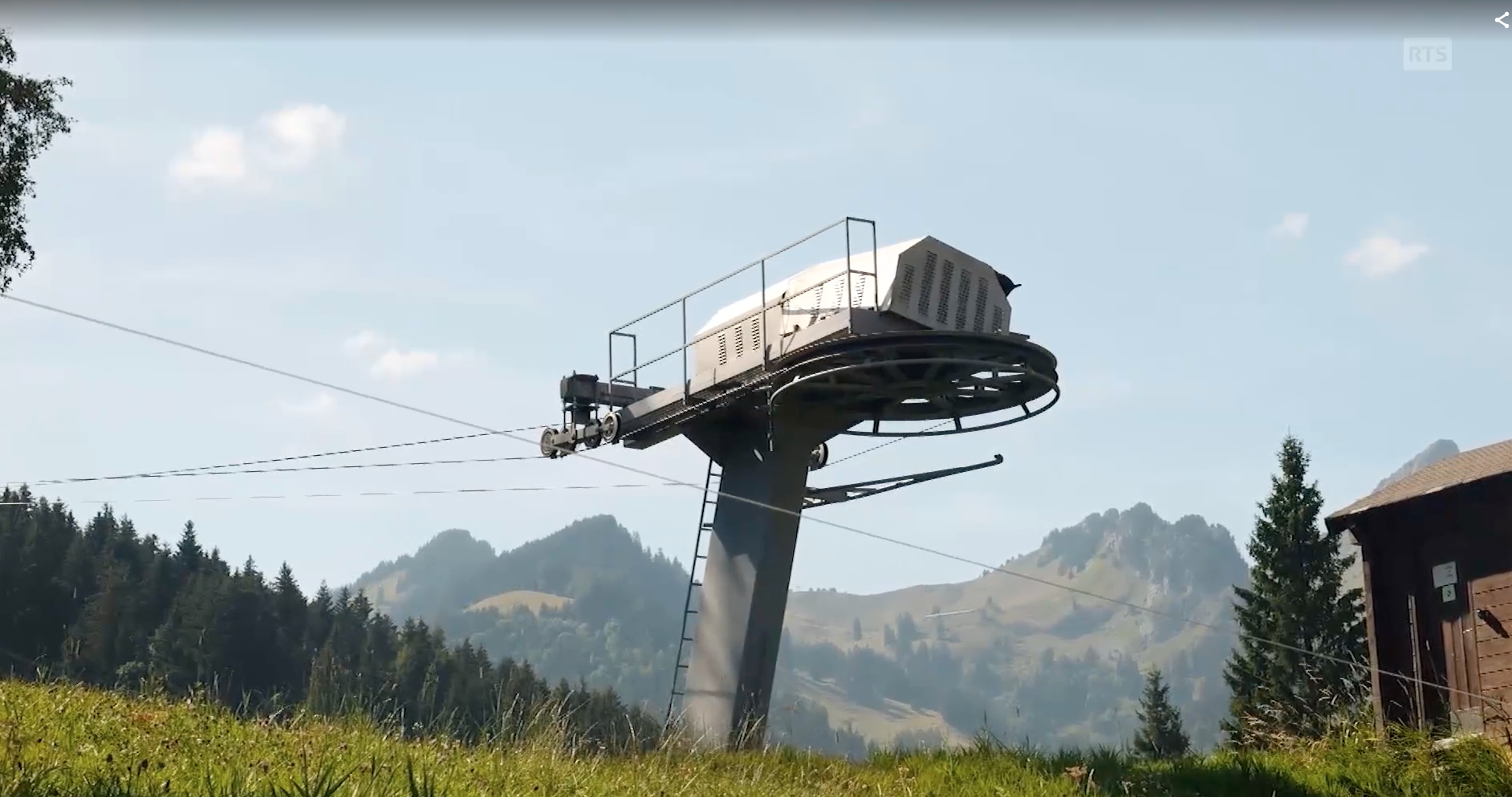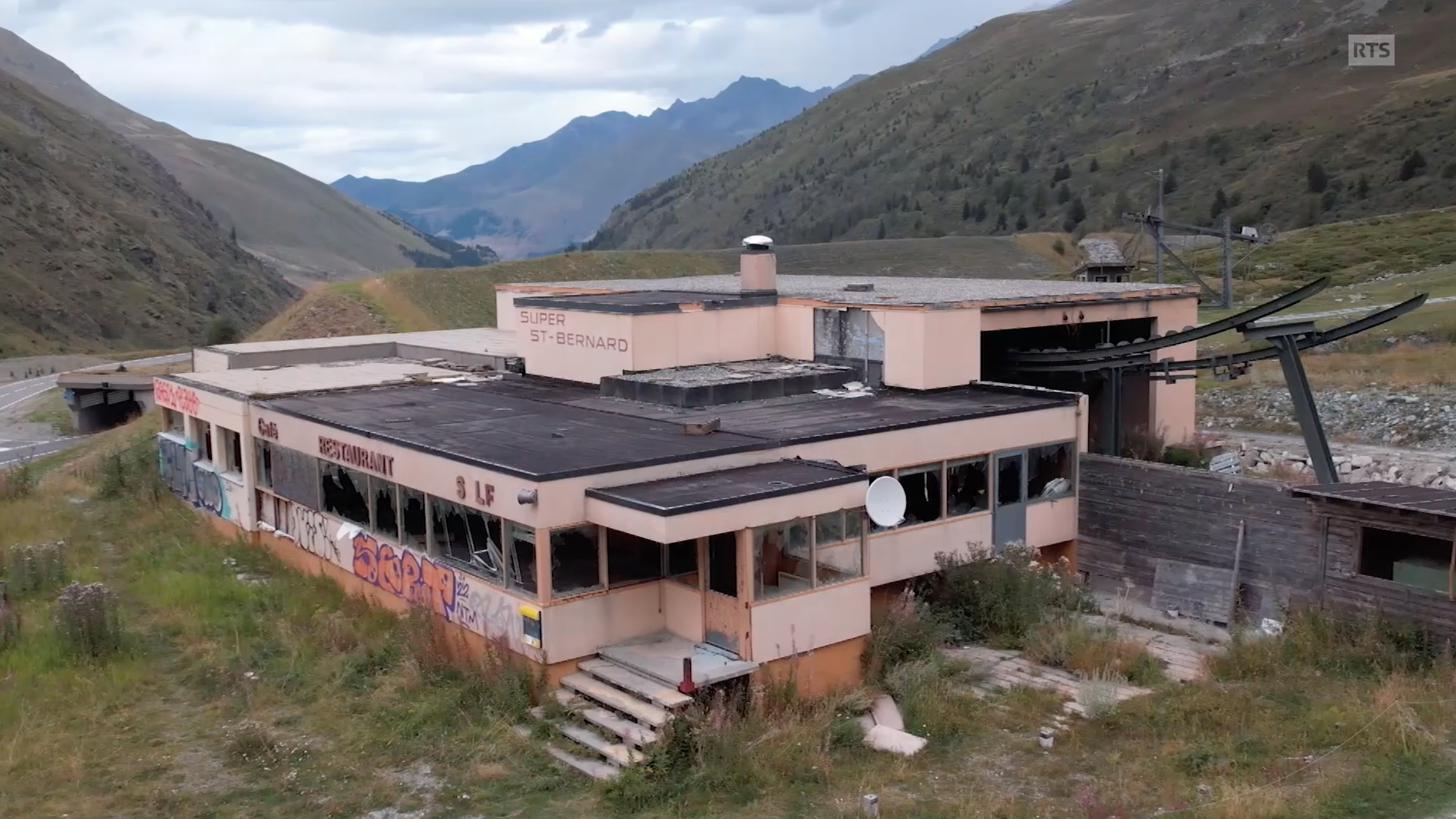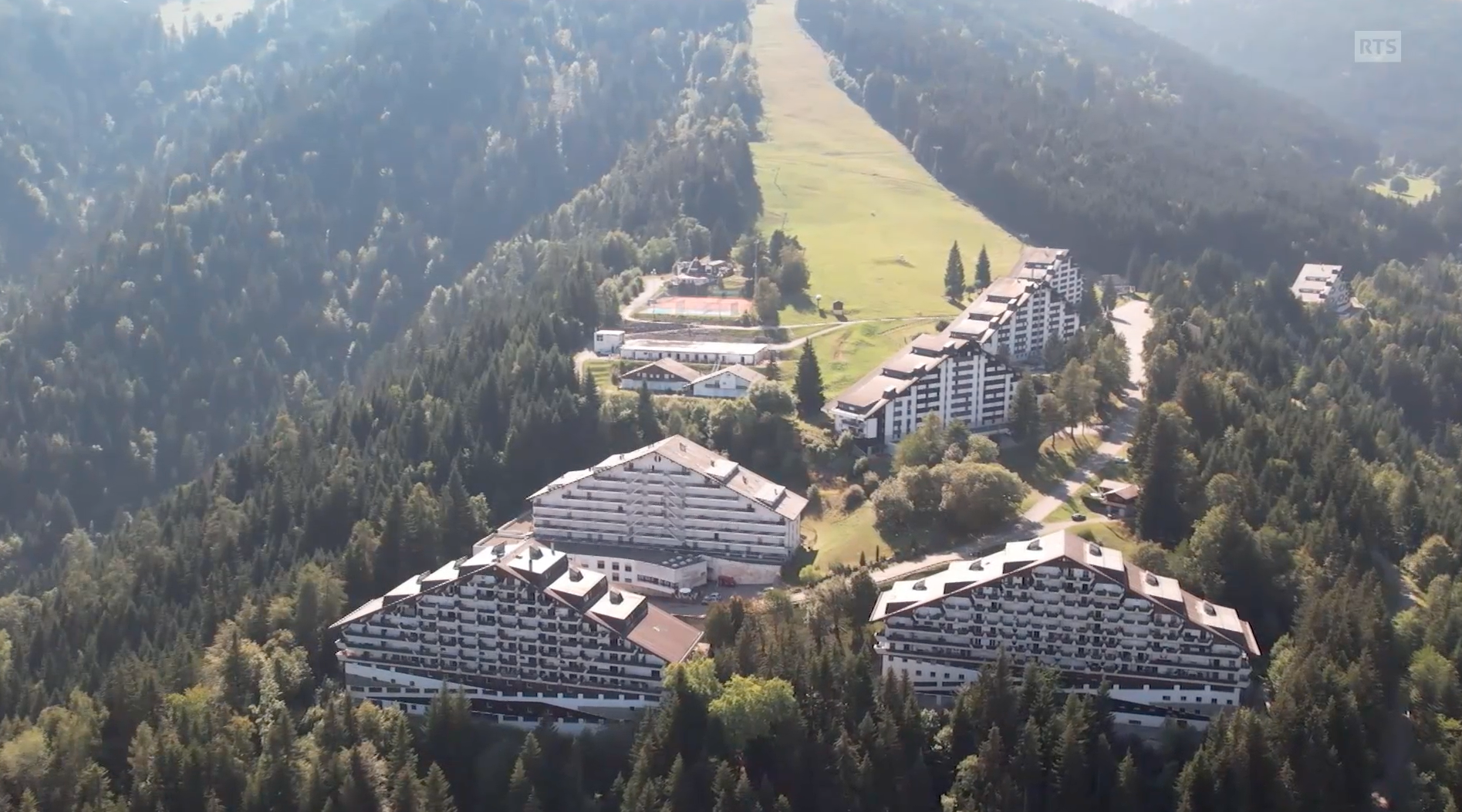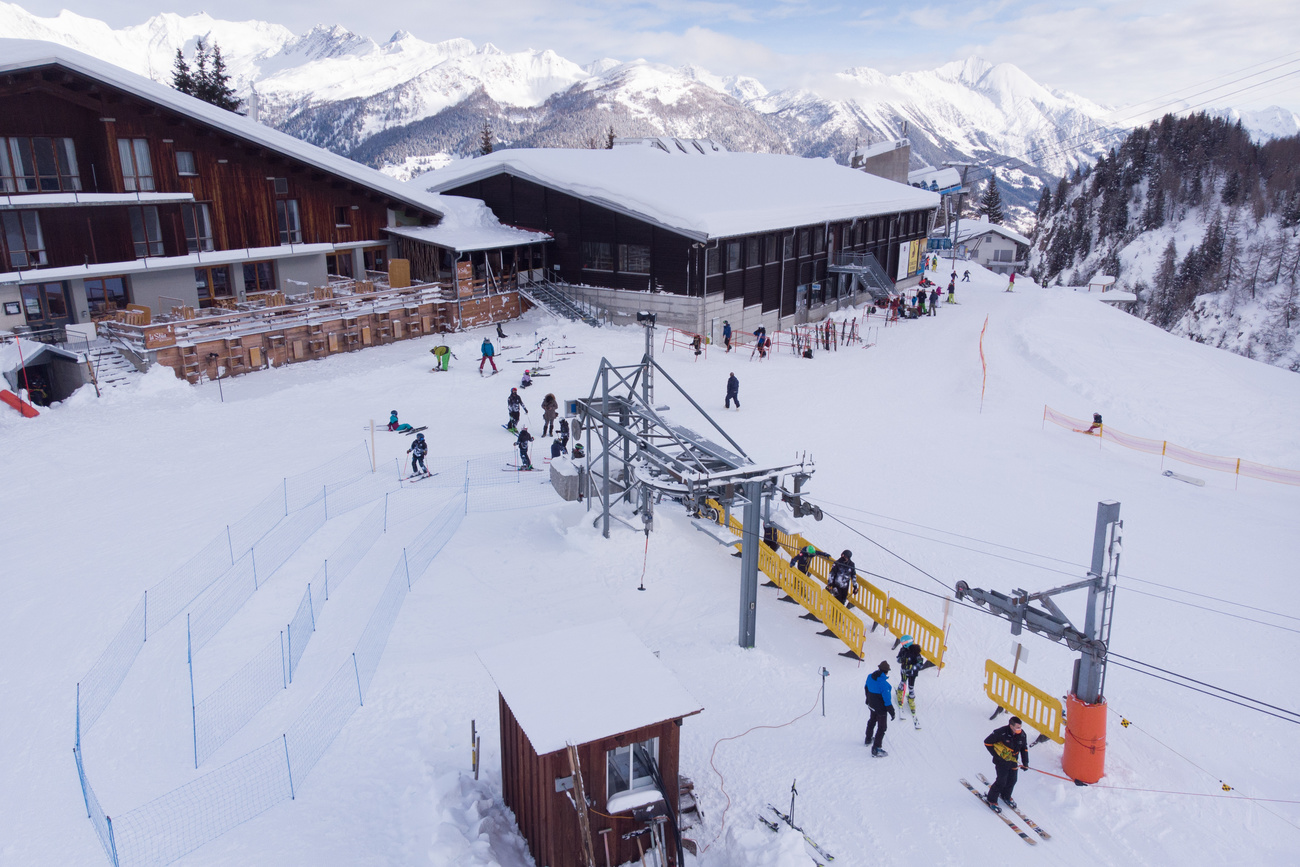
Going downhill: more than 50 Swiss ski lifts are rusting away

Chairlifts, T-bar lifts and cable cars in Switzerland are being shut down for economic – and increasingly climate-related – reasons. An expensive headache for local authorities.
What to do with these infrastructures? What’s the best way to dispose of the rusting remains? The question of decommissioning concerns all mountain regions. According to a study by NGO Mountain WildernessExternal link, 65 installations in Switzerland are now out of operation.
The NGO has recorded all disused ski lifts where the masts and the valley or mountain station are still visible. The phenomenon is increasing. The reasons for this are the increasing economic difficulties of the ski resorts and problems with the amount of snow.
“We’re surprised by the scale of the phenomenon. These structures have an enormous impact on the landscape. But with climate change, more and more ski resorts will have to close. We need to think about a national dismantling strategy,” says Luisa Deubzer, project manager at Mountain Wilderness. The NGO used satellite images for its study before confirming on site that every facility is out of operation.

Most of the disused ski lifts are located in the cantons of Vaud (ten), Graubünden (nine), Bern (nine), Valais (nine) and Neuchâtel (seven). Most are located at an altitude of less than 1,500 metres above sea level.
Among others, RTS visited the Super Saint Bernard ski resort, which was closed in 2010. The 20 huge masts of the gondola lift line are rusting away in the mountains. The valley station has become a destination for squatters, migrants and partygoers. The place is littered with rubbish, the windows are broken and the walls are covered in graffiti.

“It’s terrible for the image of Valais. It’s the first building you see when you arrive from Italy. It’s a blot on the landscape. I would prefer it to be demolished,” says Claude Lattion, the last operator of the ski resort. The building itself is a danger: the walls are full of asbestos and the floor is probably contaminated with heavy metals.
Despite requests from the Federal Office of Transport, neither the canton nor the municipality has dismantled the facilities. The parties involved are blaming each other. Nobody wants to bear the costs of a construction site costing several million francs.
Expensive problem
According to federal regulations, any installation that has been decommissioned for five years must be dismantled. In practice, such construction sites are rare for financial reasons. Legally, it is the lift company that has to carry out the dismantling. However, these companies often go bankrupt. The burden then falls back on the municipalities which own the site.
This is also the case in the Valais ski resort of Torgon, where two chairlifts and a T-bar lift have been closed since 2015. The municipality has already set aside CHF600,000 ($665,000) for the closure, but the bill could rise even further if environmental pollution is detected.
Aside from the financial question associated with dismantling, some people cannot say goodbye to the installations because they see them as cultural heritage. In Château-d’Oex, canton Vaud, a group of citizens bought a cable car and a chairlift from the municipality for a symbolic franc. They hope to be able to put the infrastructure back into operation.

“The stopping of the ski lifts has led to a decline in economic activity in the village. Many shops have closed. We want to stop this decline with ski lifts that are geared towards sustainable, four-season tourism,” says Jean-Pierre Bach, a local hotelier and member of the Edelweiss Paradise association, which bought the lifts.
Theoretically, they have until next year to put the cable car and chairlift back into operation, otherwise the Federal Office of Transport could demand that they be dismantled, which is estimated to cost CHF2 million. However, the association would have to raise between CHF6 million and CHF10 million to put the facilities back into operation.
Translated from German by DeepL/ts

More
The importance of ‘white gold’ to the Alpine economy
Balz Rigendinger

In compliance with the JTI standards
More: SWI swissinfo.ch certified by the Journalism Trust Initiative
















![The four-metre-long painting "Sonntag der Bergbauern" [Sunday of the Mountain Farmers, 1923-24/26] had to be removed by a crane from the German Chancellery in Berlin for the exhibition in Bern.](https://www.swissinfo.ch/content/wp-content/uploads/sites/13/2025/12/01_Pressebild_KirchnerxKirchner.jpg?ver=bb19e376)














You can find an overview of ongoing debates with our journalists here . Please join us!
If you want to start a conversation about a topic raised in this article or want to report factual errors, email us at english@swissinfo.ch.